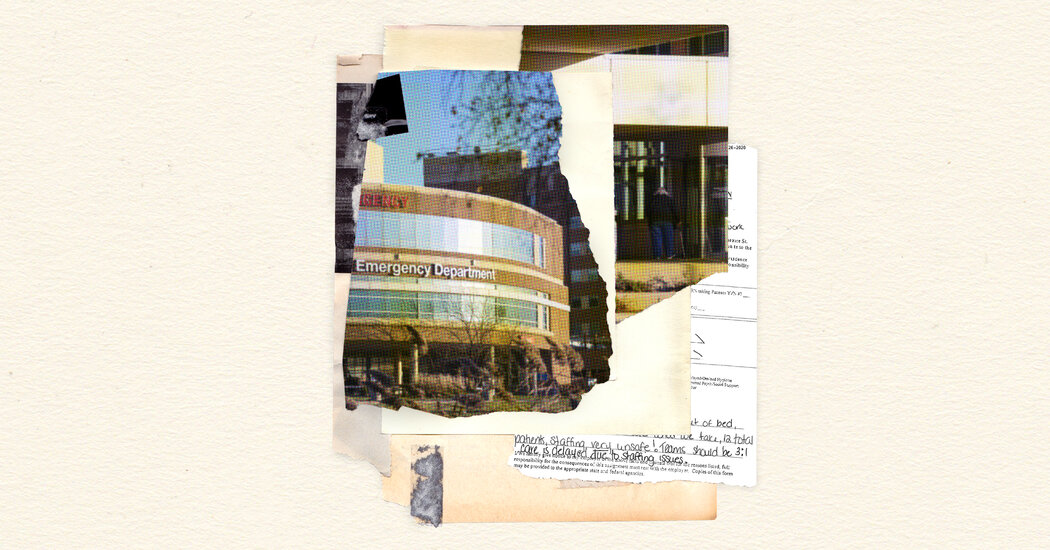Patients lingered for hours on gurneys with serious, time-sensitive problems. Surgeries were delayed. Other patients developed bed sores — gaping wounds that for frail patients can be deadly — because they were not repositioned often enough.
“You feel awful because you know you’re not turning these patients,” said Jillian Wahlfors, a nurse at Genesys. “You know they’re getting their meds late. You don’t have time to listen to them. They’re having accidents, because you can’t get in fast enough to take them to the bathroom.”
Nick Ragone, an Ascension spokesman, denied that cost-cutting contributed to staffing shortages during the pandemic. Such a claim, he said, “is fundamentally misguided, misleading and demonstrates a lack of understanding of the impact of Covid-19 on the health care work force.” He also said Ascension offers superior care that “has been improving over time” and that the hospital provides free treatment for many low-income patients.
Unlike some rivals, Ascension avoided layoffs early in the pandemic, and Mr. Ragone said the chain has more employees relative to patients than many of its peers. From December 2015 to June 2021, he said, Ascension’s ratio of bedside nursing capacity to its discharged patients has increased by 64 percent, with staff increasing and discharges holding roughly steady.
Academics who study hospital workforces cautioned that the metric makes Ascension’s staffing conditions seem better than they are. For example, the ratio’s increasing number of nurses over time at least partly reflects Ascension having added about 17 hospitals, while the data on discharges does not include outpatients, even though nurses are spending more and more time caring for them.
Because it is difficult for outsiders to verify such industry-supplied data, hospitals can use it to serve their own purposes.
“The complexity and the lack of transparency, all of these things make it impossible to try and figure out exactly what’s going on,” said Linda Aiken, a professor at the University of Pennsylvania School of Nursing, who has conducted large surveys of hospital staff. “That’s why we ask nurses.”


